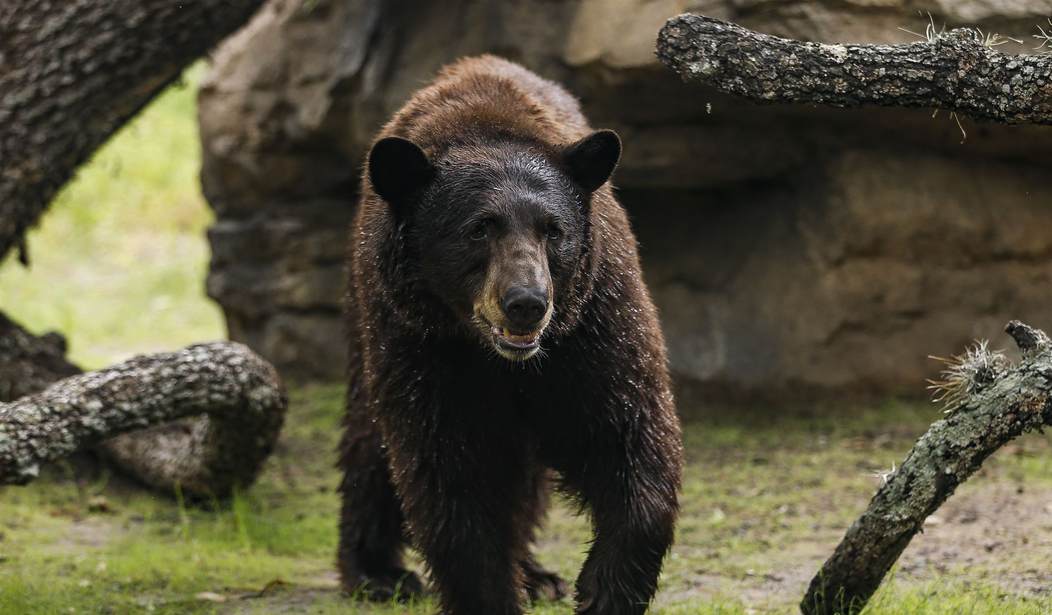An update that largely slipped under the radar is Connecticut authorizing a new bear self-defense law.
The Nutmeg State, which boasts deep-rooted anti-gun sentiments, is being overrun by black bears. The problem is so pervasive that even the New York Times accurately reported the bear situation.
The publication reported, “Human-bear interactions have increased dramatically in Connecticut in recent years, as the state’s population of black bears has multiplied and their geographic range has expanded. This year alone bears in Avon crashed a parade and broke into a bakery. Elsewhere in the state, they have even invaded houses.”
Due to the increase in human-bear conflicts, the Democrat-run legislature was prompted to pass Senate Bill 1148 to authorize the killing of black bears in cases of self-defense. It passed by overwhelming vote totals in both chambers and was signed into law by Governor Ned Lamont (D-CT) on June 28, 2023.
The bill, now law, establishes a kill permit for taking bears that “damage crops, livestock or bees, authorize the killing of bears that cause harm to a person or pet or that enter an occupied building.” The law also established an annual lottery bear hunt season in one area: Litchfield County. It also barred illegally feeding them.
Recommended
However, Some Connecticut residents said this measure doesn’t go far enough to control the bear population - about 1,000 to 1,200 individuals across a densely-populated state. The Department of Energy and Environmental Protection said there were 67 home entries by bears in 2022–a record year for bear home break-ins.
One Connecticut hunter argued in the Hartford Courant that SB 1148 won’t mitigate conflicts because a provision to allow a highly regulated bear hunting season was nixed from the final bill:
“Indeed, the DEEP supported this legislation when it was first introduced and would have welcomed hunting as a tool to manage the increasing bear population. But state legislators acquiesced to pressure from ill-informed animal rights groups and prioritized emotional appeals over conservation and public safety. SB 1148 now fails to fully address this public safety risk for the Constitution State’s 3.6 million residents—a risk made clear last year when a 10-year-old boy was mauled by a bear in his grandparents’ backyard.”
He continued, “A carefully managed hunting season, however, would serve as a vital tool in managing the bear population, reducing conflicts, and preserving public safety. As seen with the unfortunate bear attacks, ignoring the problem and yielding to activist pressure only puts both humans and bears at greater risk.”
On the other side of the debate, the CT Coalition to Protect Bears - composed of notorious preservationist groups like the Humane Society of the United States, Sierra Club, and Center for Biological Diversity - formed in 2021 to oppose bear hunting in the state.
The group’s stated goal is to “promote proven non-lethal strategies that allow people and Connecticut’s native black bears to co-exist peacefully. The CT Coalition to Protect Bears opposes hunting of our state’s small bear population and supports humane policies for orphaned bear cubs.”
“Hunting bears is unsafe, it’s not necessary, and most importantly, it’s not going to reduce interactions between people and bears,” Annie Hornish, the Connecticut director for the HSUS, told NYT.
This misguided thinking nearly plunged New Jersey into chaos. After human-bear conflicts in Jersey rose, Governor Phil Murphy (D-NJ) reversed his campaign promise to ban black bear hunting and reinstituted a season against the wishes of the aforementioned groups that also meddled in his state.
Anti-management alarmism, thankfully, is finally being ignored by Connecticut Democrats. Their lawmakers seem to recognize the problem with assigning humanlike qualities to bears—a worldview promulgated by the “pro-bear” group.
“It started out as a nuisance, but this is no longer a nuisance,” Democrat State Rep. Eleni Kavros DeGraw told NYT.
“We have anthropomorphized them, and they are not Yogi,” she added. “That’s the problem.”
Are black bears- including Connecticut’s population - endangered or threatened? Would a hunt truly decimate their numbers? No, and no.
As I noted at Townhall last November, black bears are of “Least Concern” and aren’t in danger of going extinct in the U.S. thanks to hunting:
The International Union for Conservation of Nature (IUCN), an organization focused on conserving the integrity and diversity of nature, monitors imperiled species through its Red List and lists them as “Least Concern.” Much to the chagrin of the Sierra Club and Humane Society, their Red List also shows the black bear population is increasing.
Bear hunts attract controversy but are hardly problematic. In fact, they are based on science. Why isn't it being followed here?
Connecticut is the only northeastern U.S. state without a bear hunt. That should change immediately.
Should the bear “stand your ground law” fail to deter problem bears, local lawmakers must fast-track a hunting season to restore balance and mitigate human-bear conflicts.

























